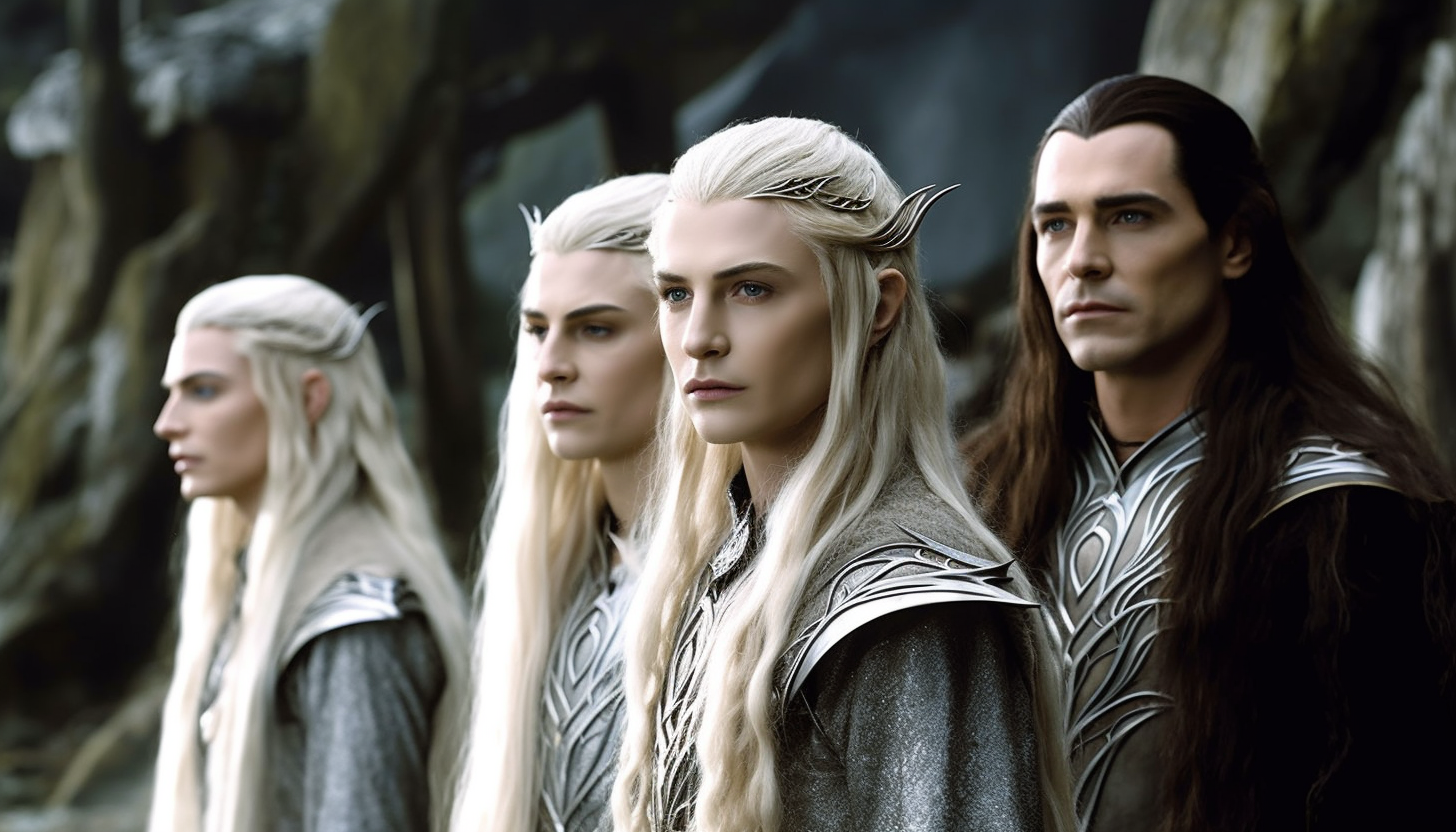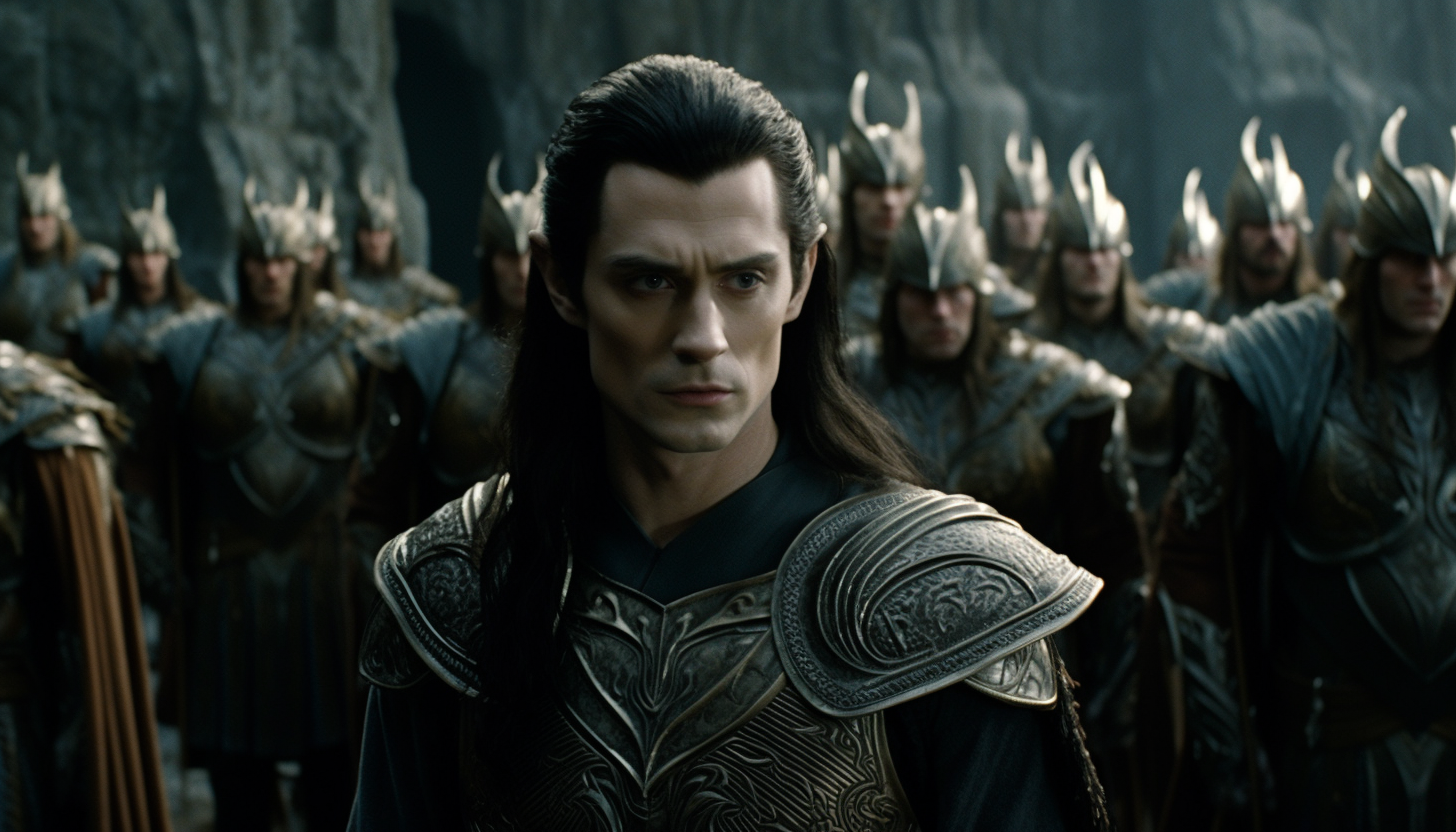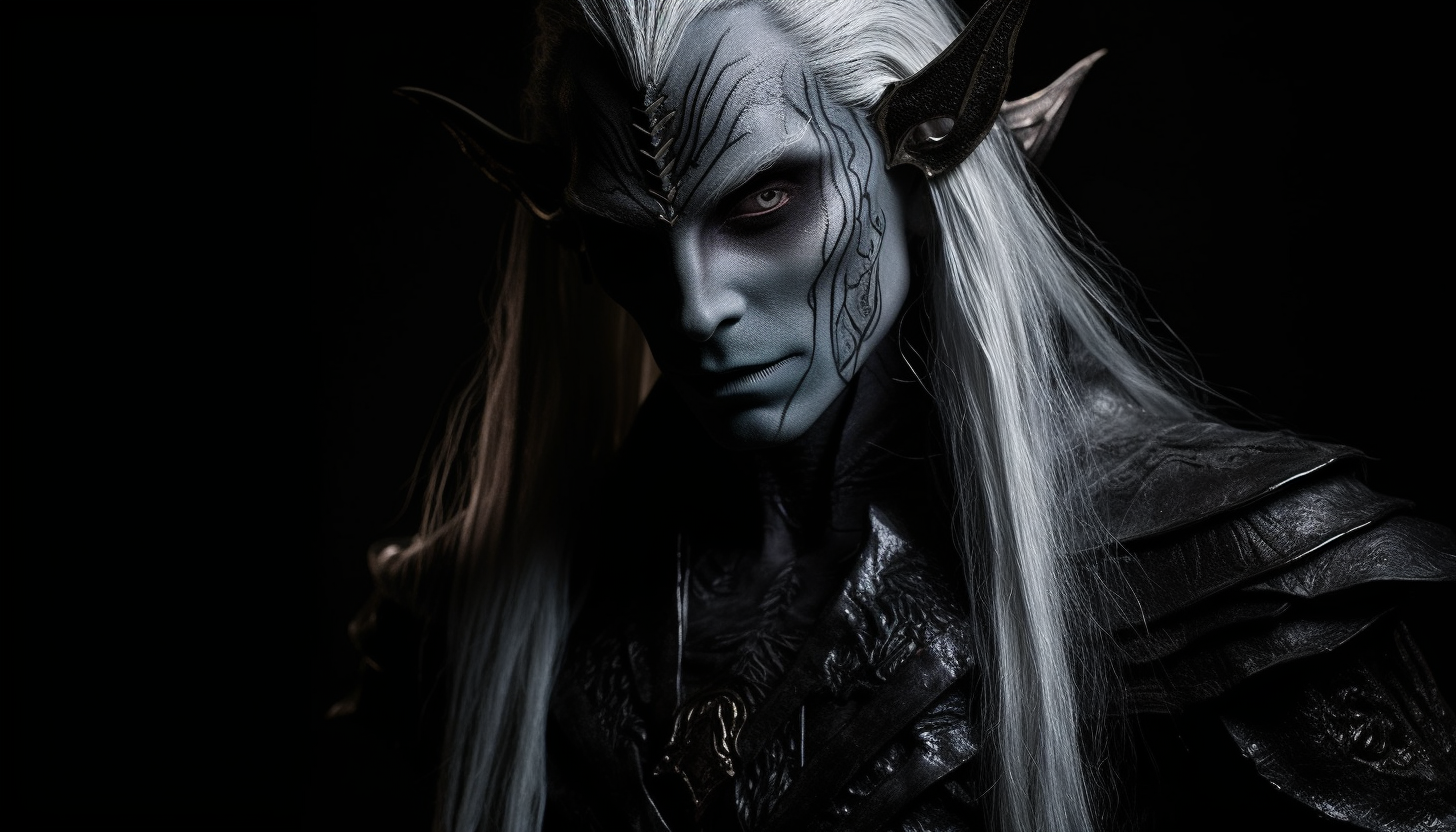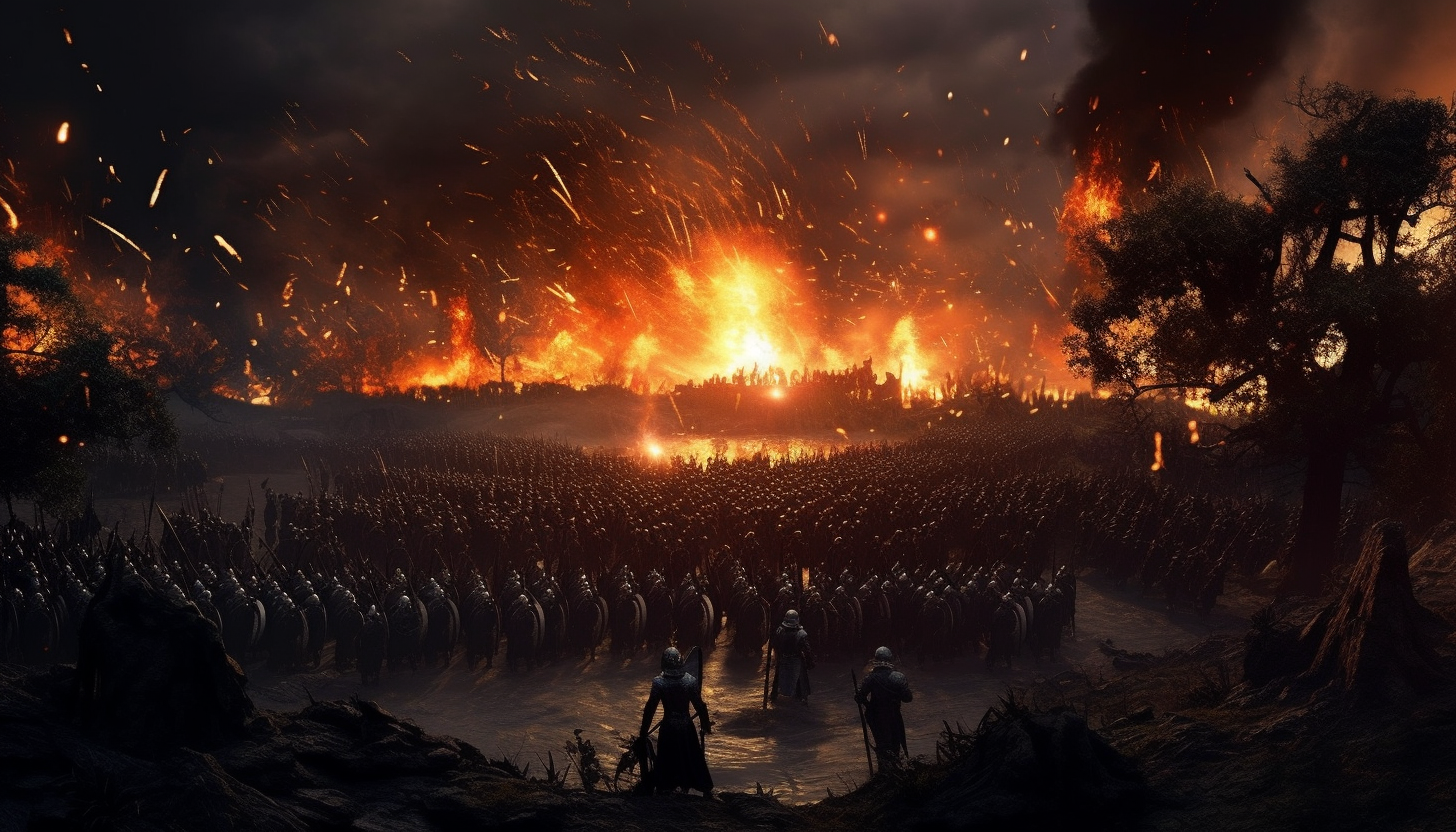The awakening humans in Hildorien began to spread into the depths of Endor. They headed towards different parts of Middle-earth in tribal formations. Naturally, this new movement in Middle-earth drew the attention of Morgoth in the first place, who was already intrigued by the Elves and now became curious about these new beings. Morgoth began to exert his influence on them, poisoning their minds and manipulating many to worship him. However, not all humans chose Morgoth. The group known as Atanatari rejected Morgoth’s poisoned ideas and set out westward in search of new dwellings.
Meanwhile, the Noldor Elves in Beleriand was trying to choose their new kings after Feanor. The first choice was Maedhros, and the second was Feanor’s brother, Fingolfin. However, before they could decide on a leader, Melkor turned the communication initiated for peace into a trap and abducted Maedhros. He claimed to accept defeat and even offered to give up one of the Silmarils. Once they all arrived at the meeting place, he set up an ambush, attacked them, and kidnapped Maedhros. Although he attempted to use Maedhros as leverage against the Elves, none of his demands were met. He continuously tortured Maedhros during this time, even suspending him by his wrists in Thangorodrim mountain.

Fingon, the son of Fingolfin, could no longer bear Maedhros’ suffering and, against his objections, launched a solo operation to rescue him from the perilous Angband. Fingon successfully saved his cousin Maedhros. As a result, Maedhros relinquished his claim to the throne in a show of respect. Thus, Fingolfin became the new leader of the Noldor in Middle-earth. However, unlike Maedhros, the other brothers were displeased with this decision. They knew that if any harm befell Fingolfin, the throne would pass to his sons, Fingon, Turgon, and Argon. Unwilling to accept this, a cold war began among the Noldor.
Fingolfin established his kingdom in Hithlum. His second son, Turgon, founded his kingdom in Nevrast. Finrod’s brothers, Angrod and Aegnor, became leaders of Dorthonion, their uncle Fingolfin’s territories. To avoid tensions, Feanor’s sons headed eastward. Maedhros settled in Himring, Maglor in Maglor’s Gap, Celegorm and Curufin took their people to Himlad, and Caranthir became the Lord of Thargelion. Amrod and Amrast settled in Estolad.
After losing the Battle of Under Stars, Morgoth grew weaker with the arrival of the sun and the moon, losing power over his creatures. Upon returning to Angband, Morgoth created a thick cloud of smoke that plunged his fortress into darkness once again. By the year FA 60, Morgoth and his armies were ready for another war. Thus, the Battle of Glorious Reaping began, fought on three different fronts. Melkor confronted the troops of Fingolfin and Cirdan, Angrod and Aegnor, as well as Feanor’s sons. The Elves of Doriath and Ossiriand did not participate in this battle. Angrod and Aegnor tried to keep Morgoth’s forces in Dorthonion while waiting for support from the West and East. Unable to withstand the incoming armies, Morgoth was forced to retreat to Angband.
Consequently, the three groups laid a long siege on Angband between FA 60 and 455. With Morgoth trapped in his fortress, a period of 300 years of peace settled over Endor. During this time, the Noldor continued to grow. Findor settled in the newly constructed Nargothrond, while Turgon, following the guidance of Ulmo in his dream, took his followers from Nevrast to the Valley of Tumladen, where he built Gondolin.

Of course, Morgoth was not idle during this period. The Lord of Darkness, attempting to expand his army, sent an orc army to Hithlum in the West, but the orcs couldn’t withstand the Elves’ resistance. Realizing that orcs alone would not be sufficient in his war against the Elves, Morgoth created a new breed, the Dragons. In FA 260, Glaurung, the father of Dragons, secretly left Angband and attacked Fingon’s Elves. However, as he was not yet fully grown or experienced, Fingon’s elven archers inflicted significant damage upon him. Although Glaurung’s unauthorized departure exposed Morgoth’s secret plans, he didn’t stop and continued to produce dragons, orcs, and trolls.
During the peaceful period, the Edain, also known as the Atanatari, arrived in the West. They divided into three groups. The first group, led by Beor and his family, crossed the Blue Mountains. They encountered the Noldor Elves, led by Finrod, and established relations with them, eventually settling in Estolad. Beor and his people then moved towards Dorthonion and settled in Ladros, which was a part of the region.
Haladin and their people, with the permission of the Sindar Elves, settled in the forest of Brethil after reaching Doriath. The group, later known as the House of Marach and then the House of Hador, settled first in Estolad, then in Ered Wethrin, and finally in Dor-Lomin, swearing allegiance to Fingolfin. The people of Hador were somewhat different from the others. They were more colorful and tall.
However, not all humans wanted to befriend the Elves, just as there were Elves who did not want to befriend their kind. One of them was Eöl, a Sindar Elf known as the Blacksmith. Eöl, also known as the Dark Elf, grew weary of his life in Doriath and settled in the depths of the forest of Nan Elmoth, where even light could not reach. Skilled in his craft, Eöl used a fallen meteor to forge two black swords named Anglachel and Anguirel. Filled with love for his dwelling and aspiring to declare himself its lord, Eöl presented Anglachel as a gift to King Thingol. In return, Thingol offered Eöl permission to dwell in Nan Elmoth. Nevertheless, Eöl still harbored hatred for his own race.

One day, as Aredhel, the daughter of Turgon, the king of Gondolin, passed through Nan Elmoth, Eöl saw her and used magic to bind her to him, thus gaining the chance to marry Aredhel. Aredhel gave birth to a son named Maeglin, who grew up to be a talented blacksmith like his father. However, Maeglin and his mother were unhappy due to their life in darkness. Therefore, they decided to escape, leaving Eöl behind. As they fled, Maeglin took the second black sword, Anguirel, with him. The two sought refuge in the secret city of Gondolin, ruled by King Turgon.
Eöl, pursuing them, was captured by Turgon’s men and brought to the city. Turgon told Eöl he could never leave again, as the city’s secrecy had to be preserved. Although Turgon assured him that he and his family could live peacefully in Gondolin, Eöl refused to submit to the Elves who had taken his lands. Being a Teleri Elf, he despised the Noldor Elves who had come later and usurped his territory. Eöl defied surrender and chose death instead. He threw a poisoned spear at his son Maeglin, whom he deemed treacherous, but the spear struck Aredhel, who had stepped between them, causing her death. Eöl, punished for causing her death, was thrown from the peak of Caragdûr. However, Eöl cursed his son before being thrown, wishing for him to meet the same fate.
Almost 400 years later, believing his army was ready, the Lord of Darkness once again took action for war. Thus, the Battle of the Sudden Flame began. Morgoth was so thorough that Thangorodrim erupted, spewing lava and forming rivers of fire. These rivers caused the armies surrounding Angband to retreat. With the path cleared to Angband, Melkor went on alert. His army, consisting of orcs, trolls, Balrogs, and the now-adult dragon Glaurung, attacked the Noldor.
Though the Edain came to the aid of the Elves, Morgoth’s forces repelled everyone. Angrod and Aegnor perished due to the flames of Thangorodrim. Melkor then seized control of Dorthonion. He continued to crush the Elves, driving them back at Lothlann and Maglor’s Gap. Maglor, taking his army to his brother Maedhros at Himring, managed to keep the fortress intact with their assistance. Melkor’s assault on Thargelion forced Caranthir to abandon Amon Ereb and retreat. While fleeing, he encountered Celegorm and Curufin and told them to withdraw to Nargothrond. Meanwhile, Maedhros attempted to hinder Melkor’s army from crossing the Pass of Aglon.

Witnessing the massacre of his race due to the war, Fingolfin embarked on a solitary journey and arrived at the gates of Angband, challenging Melkor to a personal duel. Although Melkor emerged victorious from their relentless fight, Fingolfin’s final blow caused him to walk with a limp for the rest of his life.
With Fingolfin’s death, the throne passed to his son Fingon in Hithlum. As time went on, Morgoth and his general Sauron’s attacks intensified. Melkor besieged the island of Minas Tirith in the Sirion Pass, attempting to trap Finrod and Orodreth there. However, thanks to the intervention of the soldiers of Barahir, the leader of the House of Beor, at Fen of Serech, the Elves managed to escape to Nargothrond. In gratitude for their sacrifice, Finrod gave Barahir’s family the Ring of Barahir, promising that they would come to their aid if the ring was shown.
Sources and Further Information
- Tolkien, J.R.R & Tolkien, Christopher. “The Silmarillion,” Houghton Mifflin Company (2004)
- Tolkien, J.R.R & İpek, Çiğdem Erkal “Translator”. “Yüzüklerin Efendisi,” Metis Yayınları (2007)
- Tolkien, J.R.R & Tolkien, Christopher. “The Children of Húrin,” HarperCollins (2007)
- Tolkien, J.R.R & Tolkien, Christopher. “Beren and Lúthien,” Houghton Mifflin Harcourt (2017)
- Tolkien, J.R.R & Tolkien, Christopher. “The Fall of Gondolin,” Houghton Mifflin Harcourt (2018)
- Orta Dünya – Legendarium Türkiye, YouTube
- Yüzüklerin Efendisi – Orta Dünya, YouTube
- Nerd of the Rings, YouTube
